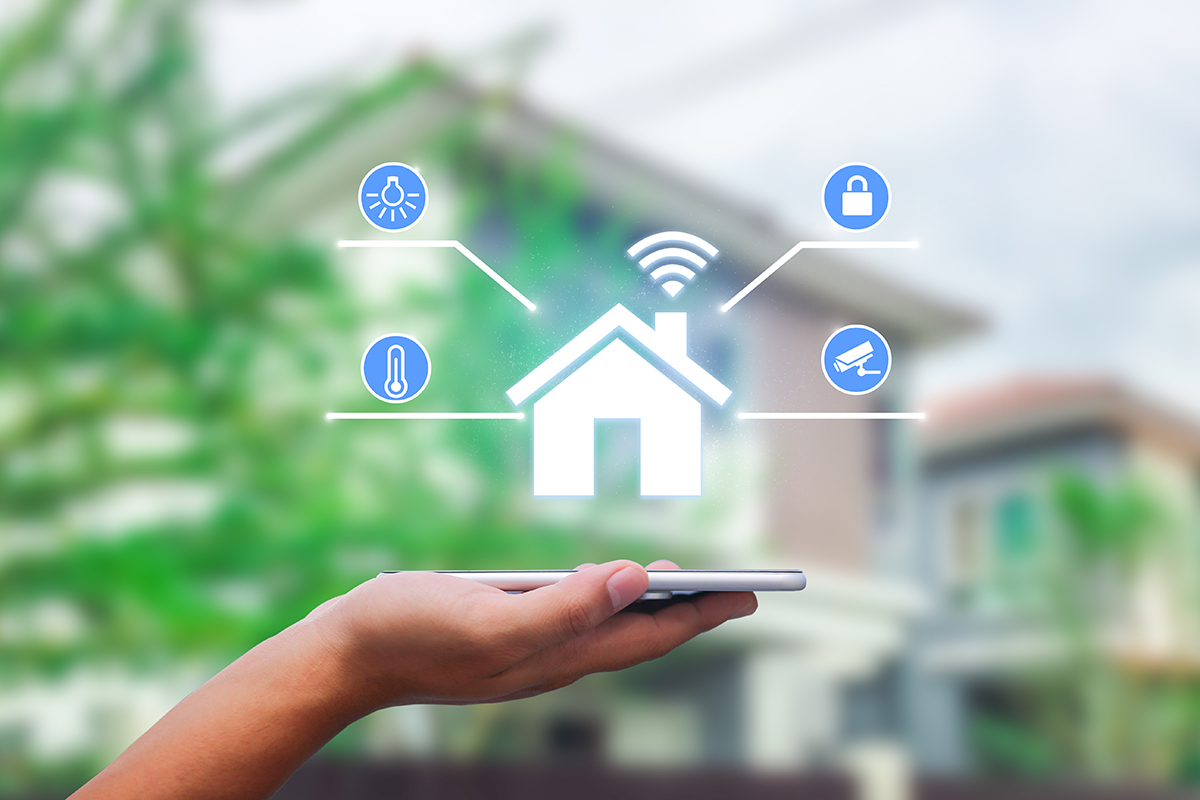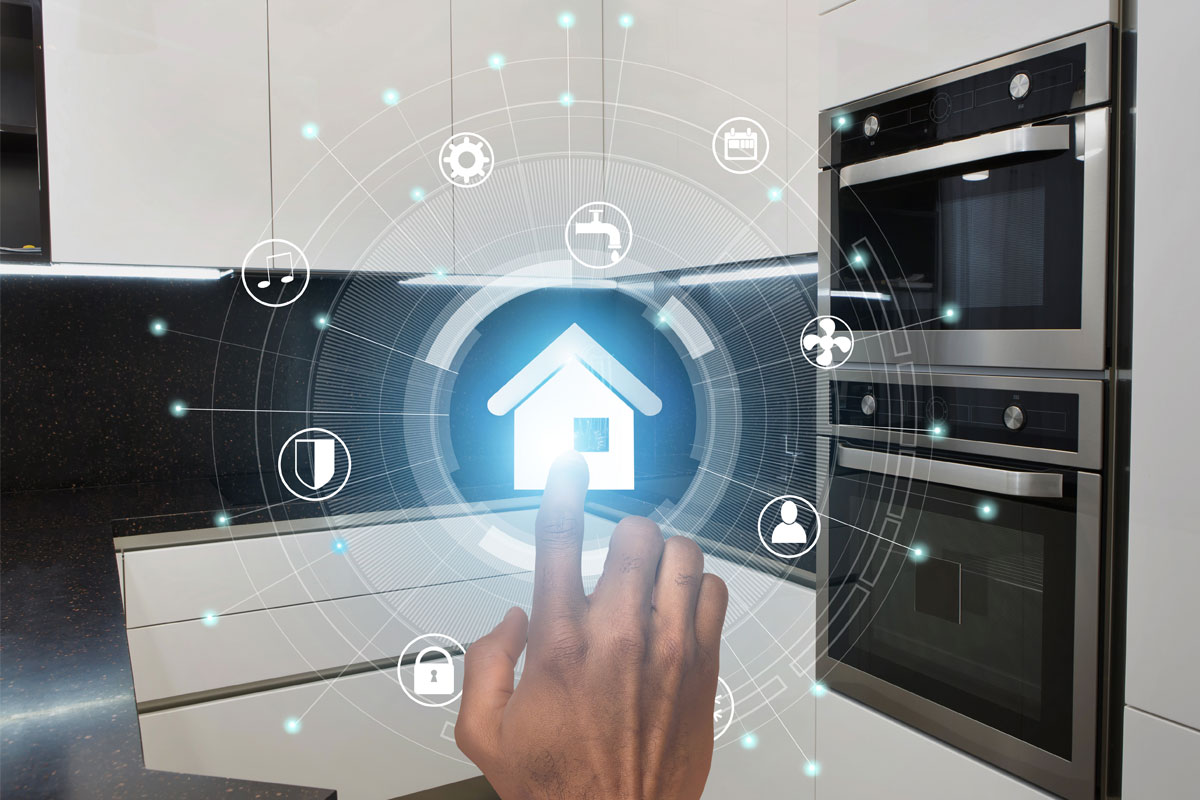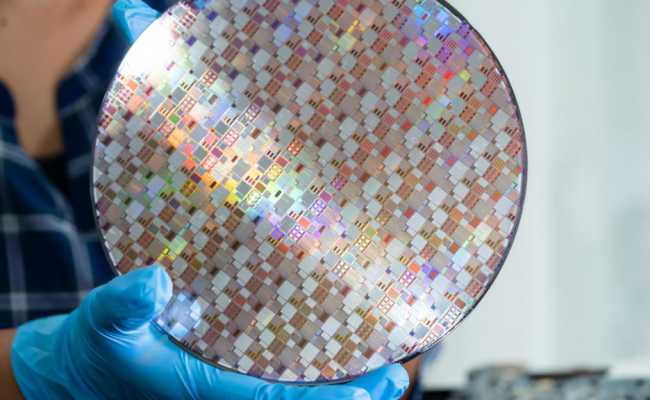In recent years, the rise of Internet-connected devices has opened new doors for smart home systems. This Internet of Things (IoT) enables connected products in our homes to make our lives more convenient and comfortable, and smart home automation represents the future of home living.
Our current technology enables us to monitor and control home systems such as heating and thermostats, lighting, and security all from our smart devices—sometimes even via voice command. Other connectable appliances such as auto-opening trashcans, or voice-controlled drapes, can make our home lives simpler and more efficient.
Overall, IoT-enabled homes and buildings are becoming smarter by giving the inhabitants more control and data into making their environment cleaner, safer, more energy-efficient, and eco-friendly. In this post, we’ll examine 7 IoT trends that you’ll soon find in a smart home:
1. Smart Home AI
Thanks to the rise of artificial intelligence (AI) and machine learning (ML), smart homes are more predictive and actually become smart. AI-driven smart homes can adapt their systems, such as the thermostat, by observing and repeating the inhabitants’ habits. This makes for a more connected home that offers a more comfortable experience.

2. Smart Bedrooms
It’s a no brainer that a smart home would come with smart bedrooms. Your sleep quality can also be improved by IoT-enabled pillows, blankets, and mattresses that monitor your sleep activity in real-time. AI-powered smart homes can also track your sleep and adjust the room temperature for a more comfortable slumber.
3. Smart Showers
With IoT-connected showers, our showers are about to get more eco-friendly and user optimal. Smart showers can remember your preferences, such as preferred water temperature, outlet, flow rate, and shower duration. With smart home connectivity, users can access their shower through its control display, voice command, and smartphone app.
4. Smart Furniture
Smart furniture is already here, and soon we may have voice-enabled smart couches that pair with Wi-Fi, Bluetooth technology, and other home IoT devices. Other classic pieces of furniture, like dressing tables and wardrobes, are also getting more intelligent. They now automatically organize your accessories and clothes, depending on how often you wear them.
5. Smarter Fridges

Although LG® first introduced the first Internet-connected fridge in 2000, existing smart fridges were expensive and underwhelmed when it came to functionality. Advances in AI have enabled much smarter fridges, as they can identify different food items in the fridge, suggest recipes based on available ingredients, and help users plan weekly meals.
6. Smart Windows
Smart doors already exist, so why not smart windows? Thanks to IoT compatibility, electrochromic windows will become more widely adopted soon. These smart windows achieve energy efficiency in buildings (and planes) by automatically controlling the amount of light and solar energy passing through, improving indoor comfort.
7. Smart Home Robots
While we won’t get robot butlers anytime soon, we will see more robotics tech around the house. Robotic vacuum cleaners already exist, but advances in AI means that new robots will be able to assist with a wide range of domestic tasks, from cooking and cleaning to providing companionship, and healthcare.
How Ambiq Is Helping
Unless it’s plugged into an AC wall outlet, IoT devices are typically battery-powered. For the most convenient and comfortable user experience possible, these devices need long-lasting battery life, especially for edge computing.
At the heart of millions of edge devices, is Ambiq’s ultra-low-power wireless SoCs that support vital technologies required by connected homes, and smart buildings such as Bluetooth Low Energy. Powered by Ambiq’s products, IoT devices in the smart home can continue to evolve and improve.

